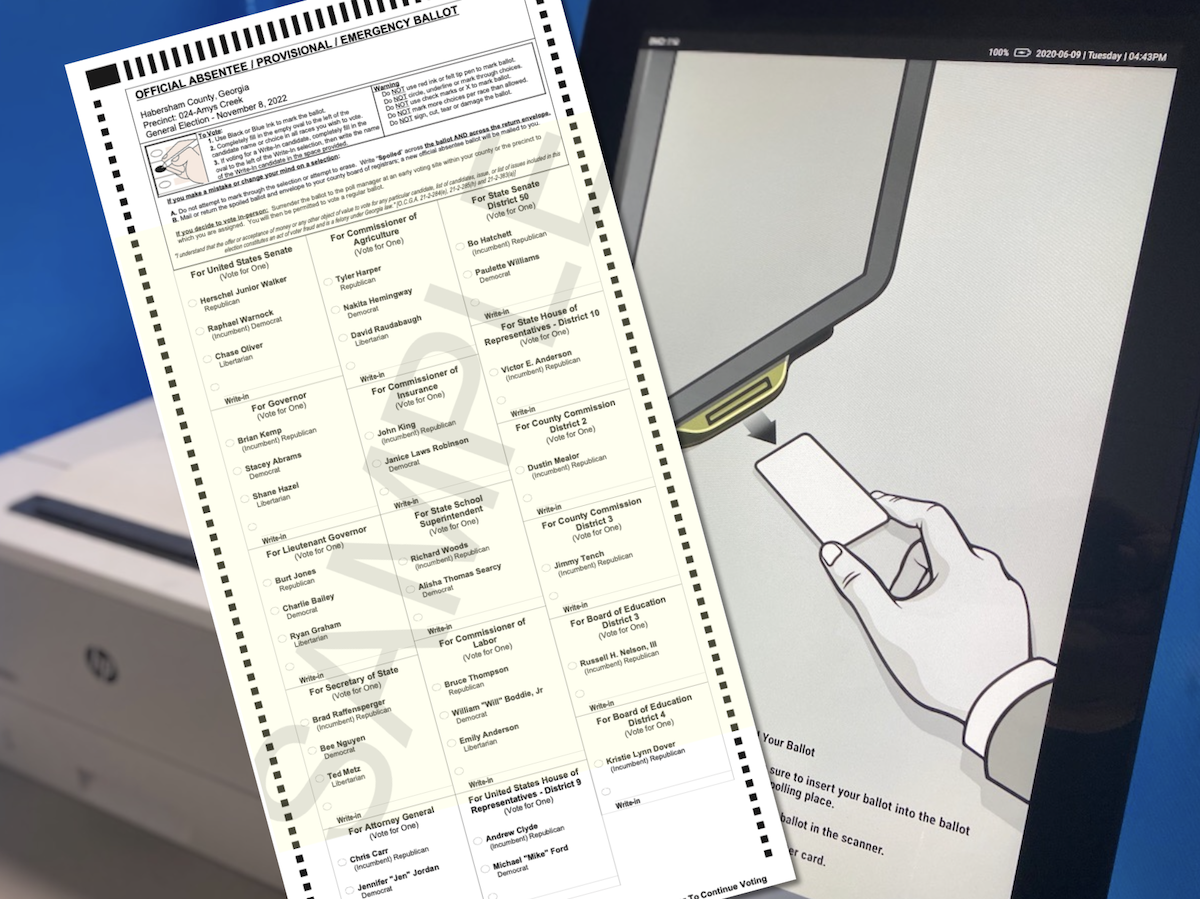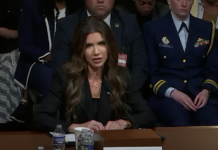
As Georgia voters head to the polls in this year’s midterm elections, they are being asked to vote yes or no on four questions. However, most voters will likely never have heard or seen these questions before walking into the voting booth.
Here’s a breakdown of this year’s proposed constitutional amendments and referenda.
QUESTION ONE
“Shall the Constitution of Georgia be amended so as to suspend the compensation of the governor, lieutenant governor, secretary of state, attorney general, state school superintendent, commissioner of insurance, commissioner of agriculture, commissioner of labor, or any member of the General Assembly while such individual is suspended from office following indictment for a felony?”
Under current Georgia law, elected officials can keep collecting their state salary after they’re indicted and suspended for a felony.
That happened in 2019.
State Sen. Larry Walker said that was the case with former Insurance Commissioner Jim Beck, who was suspended in 2019 but still collected a state salary until he was found guilty of a raft of crimes including theft, fraud and money laundering in 2021.
“Effectively, we were paying two salaries for insurance commissioner for probably a year and half, maybe two years, at an extra cost to Georgia taxpayers of $300,000 to $400,000,” Walker, a Perry Republican, said. “And I thought that was pretty outrageous.”
If the yes votes come out on top on Question One, that situation would be prevented from happening again.
Some argue the measure should fail under the 14th Amendment principle of ‘innocent until proven guilty.’
Walker says if an elected official is acquitted of the crimes, their salary would be restored.
QUESTION TWO
“Shall the Constitution of Georgia be amended so as to provide that the governing authority of each county, municipality, and consolidated government and the board of education of each independent and county school system in this state shall be authorized to grant temporary tax relief to properties within its jurisdiction which are severely damaged or destroyed as a result of a disaster and located within a nationally declared disaster area?”
Under current Georgia law, a federally declared disaster can destroy your house and you’ll still be taxed on how much it was worth before it was destroyed.
That happened in 2021.
Tornadoes ripped through several counties southwest of Atlanta in March and then cities, counties and school boards sent out tax bills.
Newnan City Manager Cleatus Phillips said current state law didn’t give him any choice but to tax properties on their assessed values as they were at the beginning of each year.
“And we had several properties that were completely destroyed or substantially damaged that had to be demoed, they were going to be assessed a property tax bill, per state law, as the value of their home or their building being there in January, but yet it’s gone,” Phillips said.
If the yes votes win on Question Two, local governments could temporarily adjust property taxes after a disaster.
It would require enabling legislation to spell out exactly how taxing authorities are to provide relief after a disaster.
QUESTION THREE
“Shall the Act be approved which grants a state-wide exemption from all ad valorem taxes for certain equipment used by timber producers in the production or harvest of timber?”
Under current state law, family-owned farms are exempt from ad valorem tax on a lot of their equipment.
Andres Villegas of the Georgia Forestry Association said timber producers want voters to tell the state yes, timber producers should have the same tax exemptions for heavy equipment that farmers have.
“This is really important for us,” Villegas said. “In Georgia, we plant between 200 and 300 million trees a year. We also harvest a lot of trees to make sure we’re keeping our forests healthy. For all of that equipment that we use in that process, this is going to help us make sure that we keep that industry healthy.”
QUESTION FOUR
“Shall the Act be approved which expands a state-wide exemption from ad valorem taxes for agricultural equipment and certain farm products held by certain entities to include entities comprising two or more family-owned farm entities, and which adds dairy products and unfertilized eggs of poultry as qualified farm products with respect to such exemption?”
Like the previous question, this is about ad valorem tax exemption. Currently, family-owned farms are exempt from the tax on a lot of their equipment.
But Jake Tench of the Georgia Agribusiness Council said that exemption ends if they merge with another family-owned farm.
“And a lot of it is existing farms that cannot justify a new million-dollar cotton-picker or combine or whatever it might be,” Tench said. “So they will be able to go in and partner with another family farm and buy that piece of equipment together so that they can still operate in today’s economy.”
Vote yes on Question Four if you believe farms should get the tax break on machinery they share.
What are the budget implications?
Lawmakers approved all of this year’s constitutional amendments and referenda overwhelmingly — but not with much study on their financial implications.
The Georgia Budget and Policy Institute’s Danny Kanso said it’s especially hard to justify tax exemptions, potentially costing state and local governments millions of dollars, without a thorough estimate of the costs and benefits.
“There’s a provision that actually does require what’s called a Fiscal Note, where the experts down at the General Assembly who work for the state would provide their best good faith estimate of the cost of that program,” Kanso said. “And that just wasn’t done in this case, unfortunately. So voters aren’t going to have all of the information that they would need.”
Regardless of how much they know about these questions before they cast their ballots, Georgia voters will have the final say on all of them on Election Day, Nov. 8.
_____________
This article appears on Now Habersham through a news partnership with GPB News







